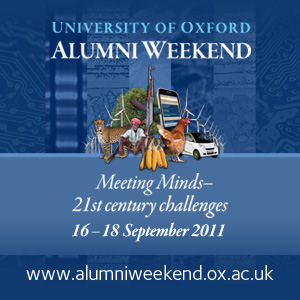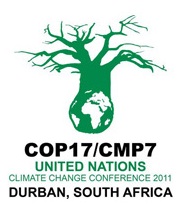Will Tony Blair’s Africa Governance Initiative’s focus on large-scale economic investment lead to further underdevelopment in Africa?
Tony Blair’s establishment of the Africa Governance Initiative (AGI) has been lauded by reporters and bloggers as being indicative of a “new” way for the international community to engage with African countries to assist in poverty reduction and to move “beyond aid” by “attract[ing] sustainable investment” to the continent. While the tenets of Blair’s AGI are fairly clear — focusing on strengthening African leadership and good governance and boosting economic growth through sustainable development of infrastructure — a visit to the AGI website is less than clear on how the initiative will (or can) ensure the necessary good governance. The AGI model can be summarized as: Leadership (founded on skills, systems and structures) + prioritisation + planning + performance management …
Sick Men of South Asia
Pakistan and Bangladesh are separately traveling in the same direction, toward erasure from the political maps of the future. Pakistan ceased to exist 40 years ago. The secession, in 1971, of East Pakistan on the grounds of being Bengali rather than Muslim conclusively disproved the Two Nation Theory—even for those who had believed in it in the first place. If Pakistan wasn’t the homeland for South Asia’s Muslims, what was it? After the war, Pakistan could have rethought the basis of its existence as a political entity but didn’t. Instead, the Pakistan which remained tried to carry on, pretending that it was still the land of South Asia’s Muslims, just smaller … It never figured out why it should exist …
North Korea After Kim Jong-il
In the wake of the rather premature death of North Korean leader Kim Jong-il at the age of 69, North Korea is expected to enter a period of violent turmoil and power struggle. Kim’s heir apparent is his youngest son Kim Jung-un, who is perhaps too young in his twenties and too inexperienced in political and military affairs to receive natural respect from his fellow Koreans, particularly in the context of a socialist Confucian culture. In the expected battle royal, he will face a strong rival in his uncle Jang Seong-taek, whose wife is Kim Jong-il’s only sister and who has a strong link to the military leadership through his elder brothers (one of them, Jang Seong-U, was the commander …

Justice Between Generations (Alumni Weekend: 17 September 2011)
At the Alumni Weekend 2011, Dr Mark Philp, Professor Simon Caney and Dr Adam Swift discussed the issue of intergenerational justice and asked questions about how we should allocate resources inter-generationally across areas such as welfare, pensions, higher education and the environment. By means of introduction, Dr Mark Philp, Fellow and Tutor in Politics of Oriel College and a Lecturer in Politics in the University since 1983 as well as a former Head of the Department of Politics and International Relations, set out some necessary assumptions for a worthwhile discussion of intergenerational justice: a non-deterministic world in which our choices actually matter, and an absence of either huge optimism or pessimism about the future (either of which would make worrying …

EU and China’s institutional diplomacy in the field of climate change.
Forthcoming Occasional Paper to be published by the European Union Institute of Security Studies (EU ISS). Author: Pietro De Matteis. Summary and Policy Recommendations. This Occasional Paper aims at giving another perspective on the relevance of climate change for the EU’s foreign policy. Considering its linkages with various policy areas such as energy security, economic growth, foreign policy and even political stability, climate change is a major “game-changer” in international relations, and constitute a significant opportunity to reshape the international order according to the new global equilibria. As such, the set up of the climate change regime constitutes for the EU both an opportunity and a threat, in as much as it may either accelerate Europe’s decline as a …
Connections Between the Hydrocarbon Scramble and U.S. Troop Deployment in Uganda?
In a letter to congress on 14 October 2011 U.S. President Obama announced that he was sending 100 special operations military troops to Uganda. These non-combat troops, Pentagon officials explained, will train and “provide security” to Ugandan forces in fighting against the LRA (Lord’s Resistant Army). While LRA leader Joseph Kony is wanted by the International Criminal Court for crimes against humanity, Ugandan civil society actors and peace activists were skeptical of the U.S. troop deployment to the country. Discussions on social media sites indicated a high level of fear that this move by the U.S. may be related to Uganda’s emerging oil sector while others have argued the move is a silent repayment for Uganda’s troop service in Somalia. …

Turkey in the world – between continuity & change
Just returned from a talk by the current Turkish Ambassador to the UK. The event was under Chatham House Rules, hence I will not be able to report from it. But I will use this and previous events in the last couple of weeks as an anchor for some reflections on Turkish Foreign Policy. // A rising power… Last week Davutoglu, Babacan, Boris Johnson and Jack Straw gave some interesting speeches at a dinner in London. The overall tone was clear: Turkey is a rising regional if not global power. It is the 16th biggest economy in the world with phenomenal stable growth figures currently approximately at around 8% per annum. Erdogan is a leader empowered with all three Weberian …
How are election preparations unfolding in the Democratic Republic of the Congo (DRC)? Hope or failure? Two perspectives.
Elections and the elusive quest for peace and stability in the eastern DRC: A perspective from the ground, based on fieldwork carried-out in North Kivu province in August and September, 2011 By Lindsay Scorgie Driving down the dusty main road of Butembo – a city of over half a million people, in the eastern DRC province of North Kivu – I hear the usual urban Congolese noises of motorcycles and lorries driving madly by. But these days there is a new sound too: shovels hitting the ground. All along the main road, construction is underway, as the central thoroughfare of Butembo is being paved for the first time. Not only is this an extremely rare sight in Congo, but it …









